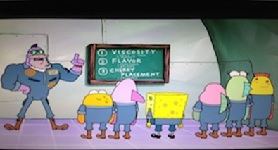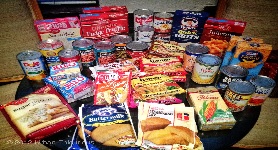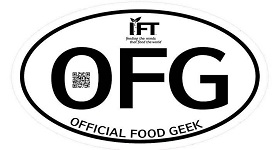By: Thomas Siebertz
Life would be grand if we were only required to take the classes that interest us the most (I could really do without calculus or public speaking). Although these other courses are necessary, I would love to take only food science classes. So I thought I would share a list of my top 5 favorite food science courses. I’m interested in what other students rate as their “top 5” and also wanted to shed some light on the outsiders who ask me what food science is.
1. HACCP – Also known as “Hazard Analysis & Critical Control Points,” HACCP is a food safety system designed to prevent biological, chemical or physical hazards from entering the food supply and is used by many food manufacturers around the world. This class was very interesting to me, and knowing how to create a HACCP plan is extremely useful in the food industry. HACCP is mandated for foods such as seafood, juice, produce, meat and poultry. More processors will need to have a HACCP plan in place with the implementation of the Food Safety Modernization Act (FSMA).
2. Food Microbiology – I have always been interested in microbiology- I even had the home science kit where you could grow stuff in petri dishes when I was a kid. When I got to college, I thought general micro and especially food micro were a real blast. From swabbing surfaces and testing sanitizers to grinding up expired food looking for pathogens, I enjoyed every minute of it! Not only is it very interesting, but vital in the food industry. We rely on microbes to make some of our favorite foods; however, we also struggle to control pathogens, which can cause illness and death. An understanding of food micro is critical for any position in the food industry.
3. Brewing Science and Fermentations – Have you ever wondered how to make beer, wine, cheese, pickles or sauerkraut? In this class, students had the opportunity to make all of these from scratch! We also learned about many other fermented foods such as yogurt, coffee, sour cream and soy sauce. Not only was this class interesting, it was delicious. It also got me into home brewing and now I brew my own beer. I think a lot of students enjoy this class because you get to apply knowledge in a practical sense.
4. Food Chemistry – Chemistry is a vast science that can be applied to many fields but its uses, as applied to food, include analyzing products for carbohydrates, lipids, proteins, water, vitamins, minerals and enzymes. Among other things, it allows us to determine the nutritional content of food as well as solve problems in processing. When I took this class, we did experiments such as testing milk for fat content and comparing it with the label. We also analyzed other products, such as various lunchmeats, for protein and water content.
5. Nutrition – What good is a food scientist who doesn’t know how food will benefit people? We must learn about how nutrients interact with the body and provide sustenance. This allows us to create products that will ultimately benefit the end user, such as fortified milk and bread. In the US we are lucky to have access to many fortified foods many other countries are struggling to solve problems with nutrient deficiencies. With increased knowledge, some of these maladies may one day become a thing of the past.
It proved tough to narrow my list to five. Some other classes that I enjoyed included: food safety and security, meat science, technology of food processing and dairy science. What are your favorite food science classes?
Photo: http://spongebob.wikia.com/wiki/License_to_Milkshake






I enjoyed Food Chemistry and Nutrition as well. However, my favorite Food Science course from my undergrad would have to be Food Product Development. With product development, everything you learned from other courses apply…such as food chemistry, microbiology, toxicology, quality assurance/control, sensory, etc.
Sounds like a cool class, Karen. Where did you take it at? I’ve heard good things about the one at Kansas State where I go. I’m still deciding whether I should take product development or quality assurance of food products. Tom
Great Post, thanks for sharing your tips Science Meets Food with us some great information has been detailed here. Thanks for a great Information. I think there are a few more ways to create links which require a little more time and financial expenditure but can give great results. For the professional – we can all learn from putting quality content on the web, it is the basis on which the web is built. For the non-professional this is a great way to get links and promote your site!